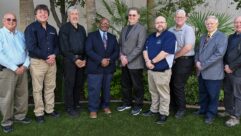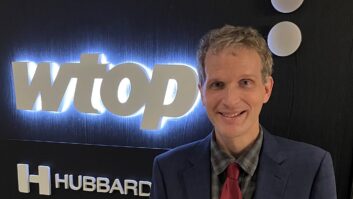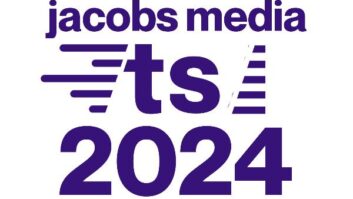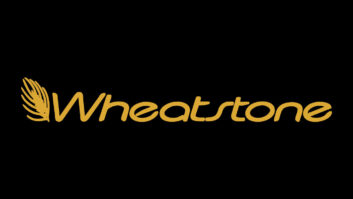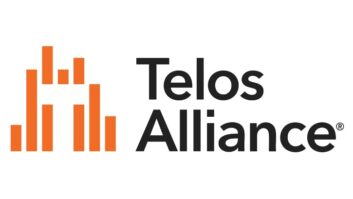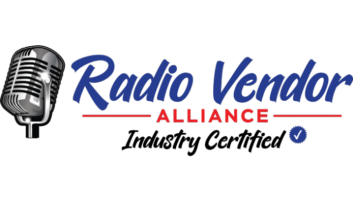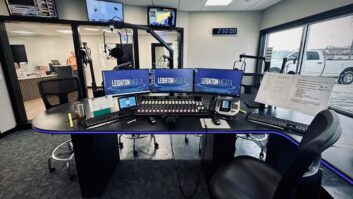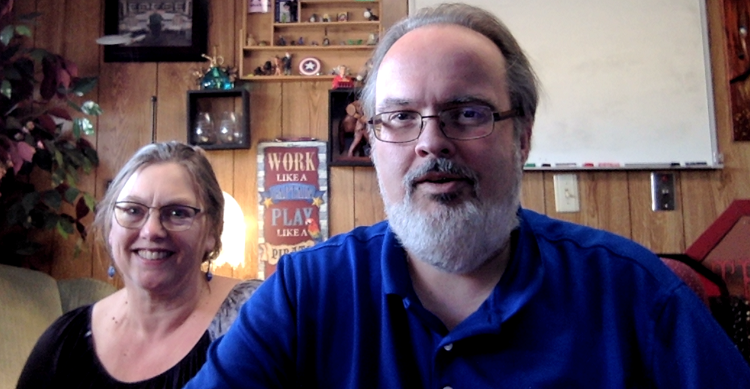
Smarts Broadcast Systems grew out of a radio station in Emmetsburg, Iowa, and introduced its first software in 1983. In an interview for our recent ebook about trends in automation, we spoke with software developer Johnny Schad and the company’s manager Debbie Kribell.
Radio World: What do you see as the most important trends or capabilities readers should know about in automation?
Debbie Kribell: Working remotely.
Johnny Schad: Yes. Remote control of systems, remotely contributing content, remote management of content, being able to distribute data throughout multiple systems.
Another big item is security. Our systems are Linux-based, so that puts us a little ahead of the game versus Windows-based systems, which are much more susceptible to viruses, such as CryptoLocker-style viruses.
We can still get hit with them though. We have a couple of [products] we’re about to release that will help safeguard data as much as possible. And because we’re Linux-based, we have the network monitoring tools to investigate people trying to attack our systems. We can see them trying from all over the world.
So far we’ve had a pretty good track record of data recovery and blocking the attackers, but we see this as a big issue, especially as we work towards more distributed system, where you’re constantly interconnecting with other machines.
RW: With that in mind, any particular advice for users?
Schad: If you’ve got a system dedicated to, say, production, in your automation system, or any Windows system, be very, very cautious about Trojan Horse emails — somebody emails you saying, “Hey, you’ve won a contest, click here.”
Kribell: Or free music.
Schad: A warranty. Some of them look very deceptive.
Kribell: They’re getting pretty good at it.
Schad: “There was a problem with your bank statement, click here to figure it out.” And in short order, a system can be compromised
Stations adopt virtual private networks, where they put their entire organization essentially behind one LAN that’s spread out over the internet. This is great for functionality, but it also introduces a whole different side of security.
Laptops are most commonly a problem, they’ll get infected and then log into your VPN, bypassing the firewall, and they can contaminate your entire empire if you’re not careful. So really scrupulous use of internet tools.
Kribell: And backup. You can’t have too many.
Schad: There’s no CryptoLocker virus in the world that can stand up against an offsite backup that you’ve safely put in a bank vault somewhere.
Our normal systems have at least two or three automated backups; and we have a product called “Super Paranoid Backup” that allows customers to cycle through USB drives, put those on the server and take them offsite.
RW: Will automation eventually all be in the cloud?
Schad: Sure. Although one has to remember what the cloud means. All the cloud is, is somebody else’s computer. Stations should make use of cloud services; but when it comes to 24/7 automation, and maybe it’s just a control freak in me, but I would rather have the computer that’s running my station under my own roof.
A lot of our customers are located at their transmitter facilities, in rural locations with iffy internet connections. Failure in an internet connection really compromises your ability to get to the cloud.
Kribell: I deal a lot with the traffic, and it’s so important to have control of that data. As Johnny said, the cloud is just somebody else’s computer. If you have a backup on a flash drive, you can pull that out of your purse, because every day you take it home with a new backup on it. It’s much easier and faster than trying to figure out who has it, did we pay for it, trying to find your password. That all takes time; and you’re not in control.
Schad: That said, the cloud will be extremely useful for convenience. We have services now — you could call them in the cloud, although they predated that term — for internet transfer of audio files and storage. But to your question of entire automation being cloud-based, I don’t know that I would recommend that at this stage.
RW: One engineer told me, “Ninety-nine percent of problems I’ve had are caused by Microsoft messing around with the operating system.” You probably have a unique take on that.
Schad: There’s a reason we didn’t choose Windows. And it was not an easy decision. All of our competitors were and are in Windows.
But in the DOS days when we were trying to make the leap from Microsoft DOS to one of the many versions of Windows, we weren’t happy with the result. Windows was meant to have a person sitting in front of it, interacting.
A system could be brought to a screeching halt with a modal dialogue box, where some kind of an error where the whole system comes to a halt or makes a big “dunk” sound on the air.
With Windows you don’t have the control over the sound system the way you do over a system like Linux, which we were able to customize.
That was a big learning curve for us, but we really appreciate what Linux has done for us, because we have complete control over the hardware and software in the operating system. We don’t have to worry about software updates, we control what gets updated and when.
RW: If your users have a need for technical support, what’s in place to help them quickly?
Schad: In some ways I see tech support as our product. It’s almost consultation-level interactions with our customers. Often we are the number they call when they just don’t know what else to do; and often a problem has nothing to do with us, we just happen to know.
I just had a call from a customer a 4 o’clock Sunday morning. He had no audio over the air. We troubleshot everything with the Skylla system and found audio on the program channel but no audio on the external air monitors. I sent him after his STL link.
We don’t just say, “It’s not our problem, call us back when you fix it.” We want to get to know the customer. And when you get to know the customer, you don’t leave them hanging.
Kribell: Our normal support is 8 to 5 Central time, but we do emergencies 24/7. They are not just a number, they’re a person to us, almost like family.
[Related: “With Automation, You’re Buying More Than a Product”]
RW: Do people have a contract for a monthly fee, or is it a one-time thing?
Kribell: You get free support for six months when you buy the system, then you can pay it monthly, quarterly or annually. It’s very reasonably priced. We’re like a way cheaper employee.
RW: On the traffic and billing side, what are the important trends?
Kribell: Being able to access your data remotely. EDI, the Electronic Data Interchange, has been a big one with agencies, we’ve been doing that for quite a few years, though I still get people who have never used it.
Traffic is still at the basics — getting that order in, getting it on the air, then billing it, doing your affidavits to verify that it ran. That’s not really changing.
RW: How do you feel about the health of the U.S. radio industry and the customer base that you rely on, the people who are your clients and our readers, this whole ecosystem that we work in?
Kribell: I feel good. It depends on how you’re doing it. If you are taking care of your local market, doing the ballgames and the remotes and the home shows, you’re present, you’re not just music on the air. You are involved in the community, fundraisers, the parade downtown in the summer.
When they are involved in the community, I see them continuing to grow.
Now, the pandemic has absolutely kicked every one of us. This hurt, none of us were expecting this. But those stations that turned around to help, they’re staying alive.
We had stations giving away advertising to keep their clients alive on the air. When they’re doing local, they’re not only helping themselves, but they’re helping that community.
Schad: I grew up in radio and I have been hearing predictions of radio’s demise since I was a kid. MTV — video is going to kill the radio star, that kind of thing.
The industry is amazingly flexible and resilient, and it has found a new home online. It’s feeling out what it can do there, but everybody has hit on the idea of content provision as being key to its survival and relevancy.
The people we market to most are small- and middle-market stations. That’s definitely our strength. These are the most resilient people, they come up with all kinds of crazy ways to keep their stations relevant in the community. We love being a part of that.
RW: You mentioned a pending new security offering.
Schad: We’re calling it Portcullis, like the gates at the castle that close down. We think that it’s going to help secure our stations against certain kinds of attacks. Nothing is 100%, but we sure want to cut down on vulnerability.
It’s going to be distributed in stages, the basic version first. Later updates will be free.
RW: What else should readers know?
Schad: The industry is losing a lot of its engineering talent, and as engineers retire, it’s getting harder to find willing people to step in. The IT world is a seductive one. Your average IT person isn’t going to be standing on a metal transmitter floor below a thousand-foot lightning rod in the middle of a thunderstorm trying to get a transmitter back on the air.
It’s a difficult job and it’s getting harder and harder to find engineers. That’s something the industry has to contend with.
Kribell: Also, sometimes people can get in — for lack of a better way to say it — a rut. If you’re still doing certain things manually —your weather, or countdowns or health shows manually — we have ways to automate that.
Schad: Sometimes, users already have features that they didn’t know they have.




